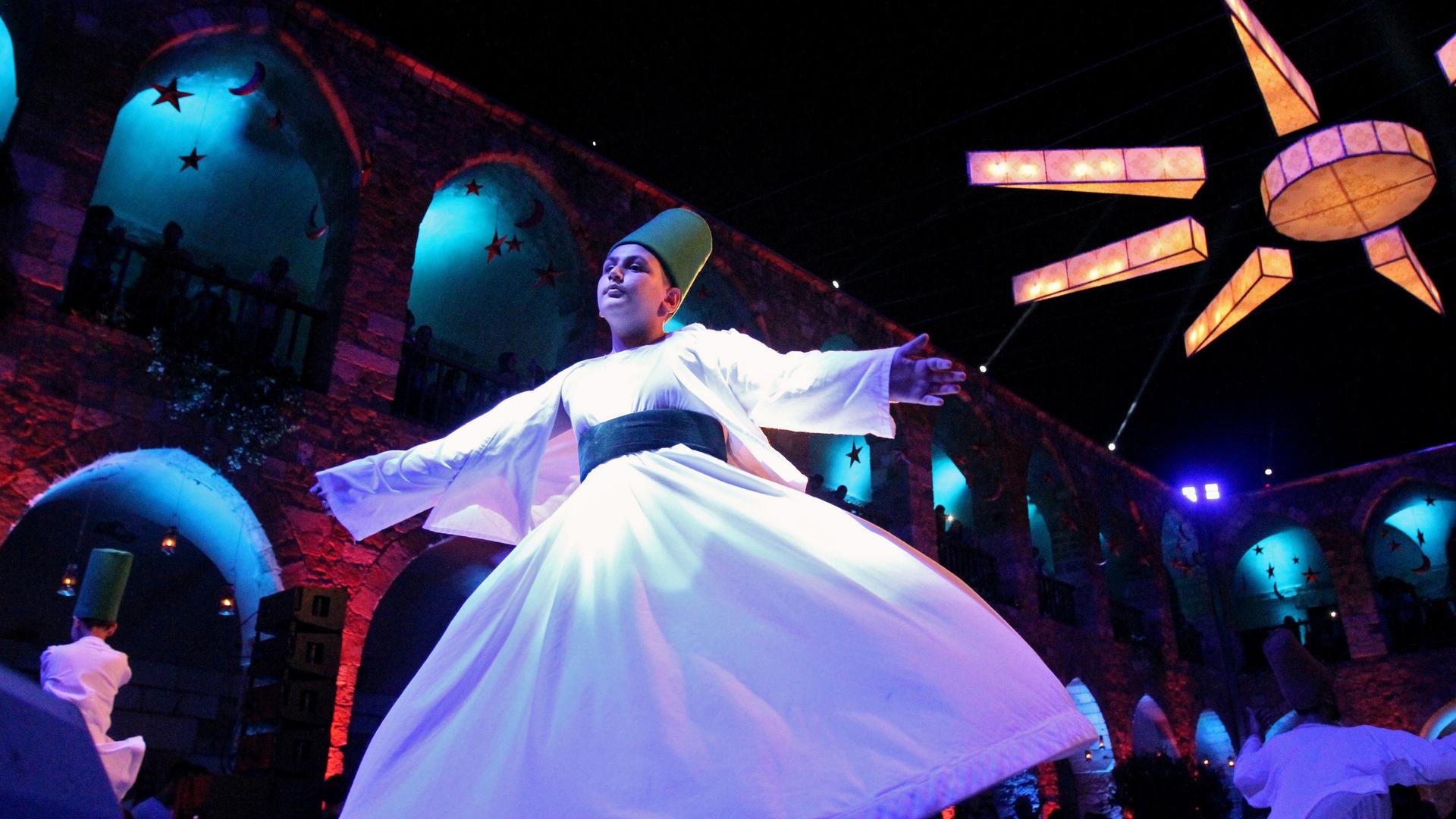A Sufi dancer celebrating the holy month of Ramadan in Tripoli, Lebanon, June 9, 2017.
The target of the horrendous massacre in Egypt on Friday has been described as a Sufi mosque.
More than 305 people were killed by suspected ISIS sympathizers.
A lot of media outlets described Sufism as a more "mystical" version of Islam. Some have added that the mysticism includes music and dancing and reverence for saints.
All of that is broadly true. But Shadi Hamid, in a new article in The Atlantic, writes that "it's a bit more complicated than that."
Hamid is a senior fellow in the “Project on US Relations with the Islamic World” at the Brookings Institution in Washington, DC.
“Sufism isn't something that is apart from Islam,” Hamid explains. “Sufism has been intertwined with Islamic history and tradition for the better part of 14 centuries.
“It's only more recently that we've come to see Sufis or Sufism as some kind of gentle, peaceful other,” he adds. “That they're the good, tolerant, pluralistic ones. And of course, many Sufis are those things. But I think the danger there is when we say that we're presuming that non-Sufis aren't tolerant or pluralistic. Because if we say that Sufis are the tolerant and pluralistic Muslims, it means that the non-Sufis are presumably something else, right?
"So, I think that one way of looking at Sufism is, first of all, just to say that it represents a dimension of Islam,” says Hamid. “So you can be any kind of Muslim but still integrate Sufi practices in your observance, and that can include things like a weekly hadra circle where some chants are uttered, or things like the veneration of saints. But generally what it's really getting at is the elevation of the personal connection with God and the inward aspects of Islam. And that's theoretically open to all Muslims, and that's why throughout history it wasn't a big deal to be part of a Sufi order. That was quite normal and mainstream.
“But technically,” Hamid continues, “if we want to just be very definitional about it, Sufis are those who are members of Sufi orders. There are, of course, other people who are not members of Sufi orders but integrate various Sufi practices, but they may not self-define as Sufi.” So there’s no reason to assume that all the people who were at a certain mosque are Sufi or see themselves as Sufi.
“Some Sufis might be more permissive when it comes to ritual or Islamic law,” says Hamid, “but many Sufis are actually quite orthodox and I think it's that side of it that we don't always pay that much attention to. And by orthodox I mean they wouldn't necessarily be that enthusiastic about dancing or music or be pro-gender equality. You know the kinds of things that we associate with Western liberalism. And many Sufis that I've met over time are actually quite strict and orthodox.
“There are other more sort of conservative strains of Islamic interpretation that do see Sufis as a problem, especially Salafis, the sort of ultra-conservative Muslims,” he adds.
Hamid sees another factor behind these sub-conscious attempts to differentiate or exoticize Sufis. “I think it also feeds into this Western obsession where we're always as Americans or Europeans or whatever trying to find moderate Muslims and to then elevate those moderate Muslims as the example for other Muslims. And we're going to the Muslim world and we're saying, 'Hey, these are the good ones. Why can't you be more like them?' And that's not just about Sufis or Sufism. I think that's a subtext of so many of our conversations about Islam and Muslims and politics and … especially now, considering the rise of Islamophobia, I think we should probably be even more sensitive to that.”
Our coverage reaches millions each week, but only a small fraction of listeners contribute to sustain our program. We still need 224 more people to donate $100 or $10/monthly to unlock our $67,000 match. Will you help us get there today?
